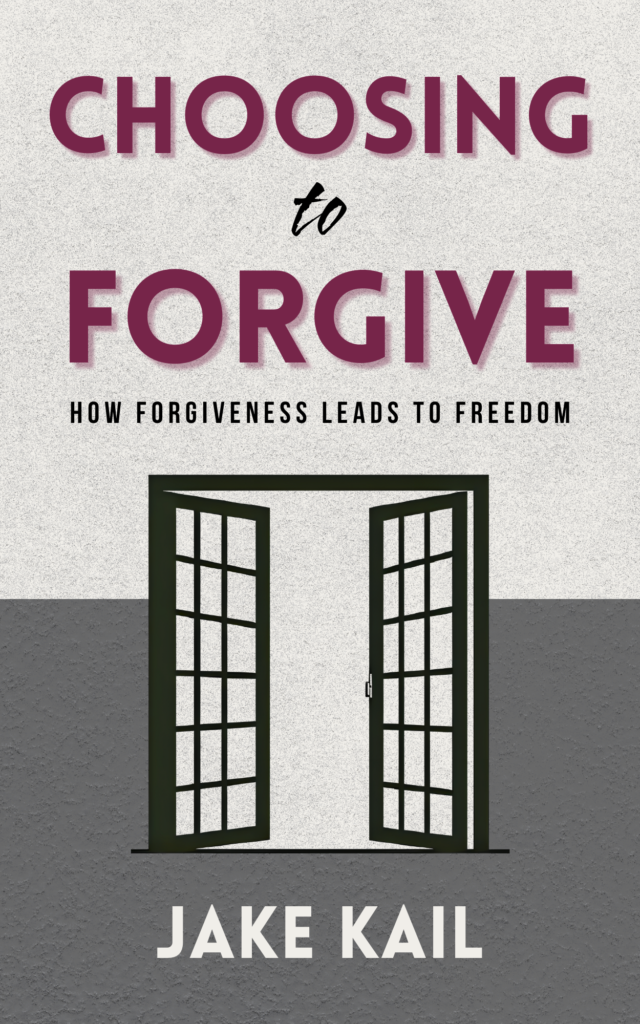
Special Announcement: Choosing to Forgive Online Book Study!
September 3, 2025
How Unforgiveness Opens the Door to Demonic Torment
September 30, 2025
The following is an excerpt from Choosing to Forgive that explains the two sides of forgiveness.
Whenever I teach on the topic of forgiveness, I often make this statement: Forgiveness is like a coin—it has two sides, and you can’t take one side without the other. Imagine you have a quarter in your pocket, and you decide to give it to a child. But when you offer the coin, the child says to you, “I only like the heads side of the quarter, not the tails. Please just give me the heads side of the coin.”
While you might smile at the child’s response, I imagine you would answer something like this: “I’m sorry, but that’s not how it works. You either have to take the whole coin—both sides—or not take the coin at all. Would you like to have the quarter?”
The same holds true about forgiveness. It is like a coin—it has two sides. God offers this “coin” to all who will receive it, but we can’t take one side without the other. The first side of the coin is receiving forgiveness from God, and the other side of the coin is extending forgiveness to others. Just like the child in our illustration must either take the whole quarter or not take it at all, so it is with us and forgiveness.
The Two Sides of Forgiveness
Throughout the New Testament, we can see how the two sides of forgiveness are placed together consistently. Consider the well-known statement that Jesus made as He was teaching a model for prayer: “And forgive us our debts, as we forgive our debtors” (Matthew 6:12). Asking for forgiveness is paired with extending forgiveness to others. And significantly, the very next verse goes on to petition the Father for deliverance: “And do not lead us into temptation, but deliver us from the evil one” (verse 13). Being willing to forgive is a precursor to freedom from the devil’s grip and demonic torment.
Jesus continues pressing home the importance of the two sides of forgiveness with the following statements:
For if you forgive men their trespasses, your heavenly Father will also forgive you. But if you do not forgive men their trespasses, neither will your Father forgive your trespasses. (Matthew 6:14-15)
It is not that we earn God’s forgiveness by forgiving others. We receive forgiveness from God through faith in the shed blood of Jesus. But when we receive God’s forgiveness, He requires that we also forgive others. We can’t take one side without the other. Mark 11:25-26 gives us very similar instructions:
And whenever you stand praying, if you have anything against anyone, forgive him, that your Father in heaven may also forgive you your trespasses. But if you do not forgive, neither will your Father in heaven forgive your trespasses.
As we can see from these passages, forgiveness is very significant in the eyes of God. In the light of Scripture, it is not a matter that we should take casually. Holding on to resentment, bitterness, and hatred in our hearts puts us in a dangerous place spiritually. We must seek the Lord to have the grace to release those who have wronged us and to forgive as we have been forgiven. And when the Holy Spirit makes us aware of a person who we are harboring unforgiveness against, our response must be to release them.
Paul’s Admonition
The apostle Paul gives us a similar teaching about the two sides of forgiveness in Colossians 3:
Therefore, as the elect of God, holy and beloved, put on tender mercies, kindness, humility, meekness, longsuffering; bearing with one another, and forgiving one another, if anyone has a complaint against another; even as Christ forgave you, so you also must do. (Colossians 3:12-13, emphasis added)
Notice the types of characteristics that Paul encourages us to have in our relationships. There is a call to meekness and humility, patience and forbearance, and compassion toward others. And we are called to forgive as we have been forgiven: “even as Christ forgave you, so you also must do.” This again is the two-sided coin of forgiveness—we receive forgiveness from God, and we extend forgiveness to others.
Forgiveness is essential to Christianity. The cross changes everything, not just about our relationship with God but also about our relationship with other people. Receiving forgiveness from God and extending forgiveness to others are foundational aspects of what it means to be a follower of Christ.
Click image below to purchase:
We live in a fallen world that is full of broken people. It is inevitable that as we walk through life, we will experience hurt and be sinned against by others to one degree or another. How we respond to these situations has a dramatic impact on our life, relationship with God, and destiny.
Choosing to Forgive gives biblical teaching and encouragement to help you release the ones who have hurt you so that you can walk in the freedom that God has for you.




